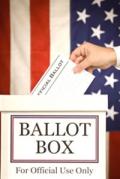Lobbyists and lobbyist employers are now required to certify that they have not knowingly violated Congressional gift and travel rules. The law also sets new penalties of up to $200,000 and up to five years in prison for violations of the Lobby Disclosure Act.
In the last year, Congress has submitted numerous bills related to various aspects of lobbying and ethics reform in response to recent lobbyist violations, including the Jack Abramoff controversy. Abramoff was sentenced to federal prison in March 2006 for defrauding American Indian tribes and for corrupting public officials when he illegally gave gifts and campaign donations to legislators in return for votes in support of legislation. Directly implicated in the controversy were Rep. Bob Ney (R-OH) and two aides of Rep. Tom DeLay (R-TX); others followed, including White House officials J. Steven Griles and David Safavian.
According to a report distributed by the Congressional Research Service of the Library of Congress, Lobbying Reform: Background and Legislative Proposals, 109th Congress, by R. Eric Petersen, legislative proposals related to lobbying focused on six broad areas, including the following:
- Enhanced requirements for electronic filing of lobbying reports and semiannual reports
- Redefinition of the term "client"
- More detailed disclosure by lobbyists of which groups and entities are funding coalitions and associations they represent
- More detailed disclosure by lobbyists of the individuals in Congress and the executive branch they contact
- Congressional rules regarding the interactions of members and staff with lobbyists
- Amended regulations of the Federal Election Campaign Act of 1971 related to lobbying activities
- New Transparency for Lobbyists Bundling Campaign Contributions: For the first time, requires reporting on lobbyists who "bundle," or collect campaign checks for members of Congress. Requires the member's campaign to report if a lobbyist bundled more than $15,000 in campaign contributions semiannually for that member.
- Historic Disclosure of Other Financial Contributions to Members: Increases disclosure of lobbyists' contributions to lawmakers and entities controlled by lawmakers, including contributions to members' charities, contributions to events or entities honoring members, contributions intended to pay the cost of a meeting or a retreat, and contributions of presidential library funds.
- Lavish Convention Parties: Prohibits members of Congress from attending national political convention parties held in their honor and paid for by lobbyists or their clients.
- Ends K-Street Project: Bans the K-Street Project, which prohibits private entities from hiring and firing based on politics.
- Expands Public Disclosure of Lobbyist Activities: Doubles the frequency of the disclosure of lobbyists' reports to four times a year. Establishes an online, searchable public database of lobbyist disclosure information. Requires lobbyists to disclose past executive branch and Congressional employment. Prohibits lobbyists from giving gifts and travel in violation of House and Senate rules. Increases criminal and civil penalties for violating the Lobby Disclosure Act to $200,000 and five years in prison.
- Ends Conflicts of Interest and Strengthens Restrictions on Post-Congressional Employment: Requires sitting members to disclose job negotiations for post-Congressional employment and to recuse themselves for purposes of a conflict of interest. It also restricts the "revolving door," banning senators from lobbying their colleagues for two years. Requires members to prohibit their staff from having any official contact with a member's lobbyist spouse on behalf of the spouse's client.
- Strengthens Senate Ethics Rules: In addition to a ban on gifts and travel by lobbyists, requires full disclosure of earmarks, points of order against out-of-scope earmarks, and limits on secret holds.
A secret hold is a parliamentary procedure that allows one or more senators to prevent a motion from reaching a vote on the Senate floor.
- Congressional Pension Accountability: Denies taxpayer-funded pension benefits for members of Congress convicted of corruption while serving the American people.
- Expands Public Disclosure of Members' Travel and Finances: Establishes an online searchable public database of the travel and personal financial disclosure forms of members of Congress.
Make staff aware of the new laws and establish policies for increasing company regulation related to lobbying. But don't set your policies in stone too soon. With so much legislation focused on ethics reform recently, it is likely that additional regulations will follow.
"I am pleased that Congress has begun to make progress in bringing greater transparency to the earmarking process," President Bush stated in a press release regarding his action to sign the Honest Leadership and Open Government Act into law. "However, this bill falls far short of the reform that American taxpayers deserve...I look forward to working with Congress to further advance ethics, lobbying, and earmark reform."




